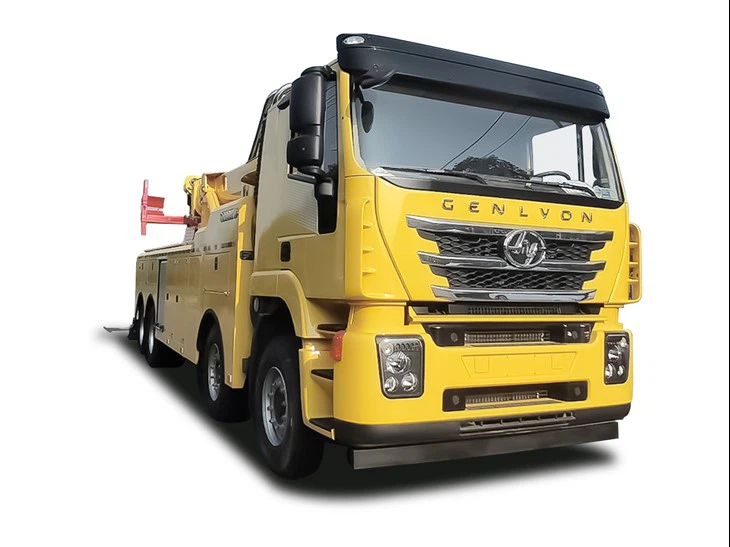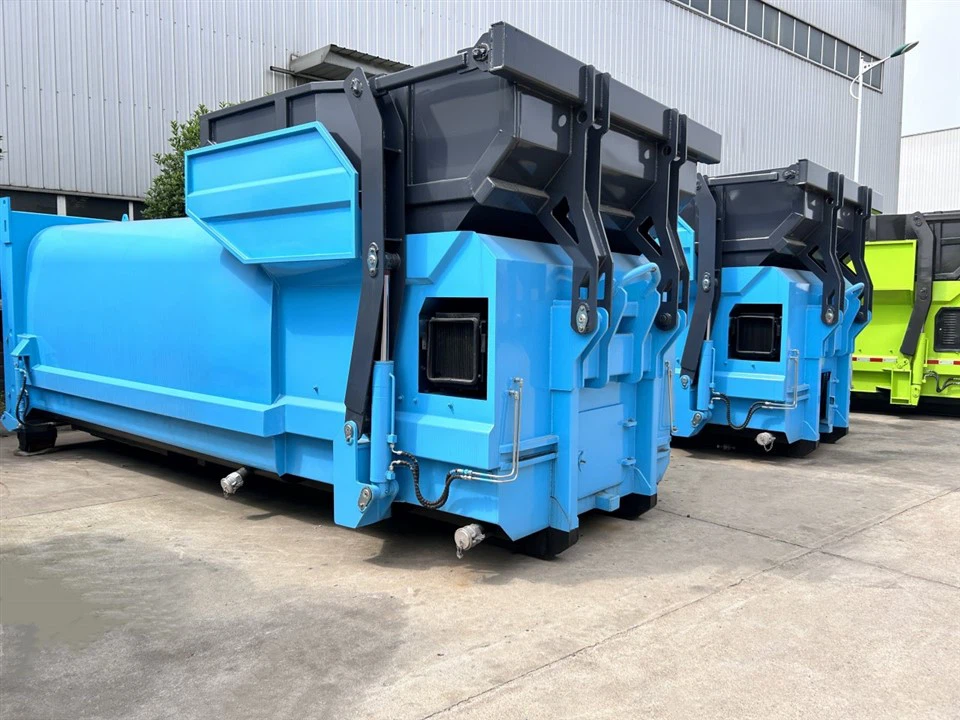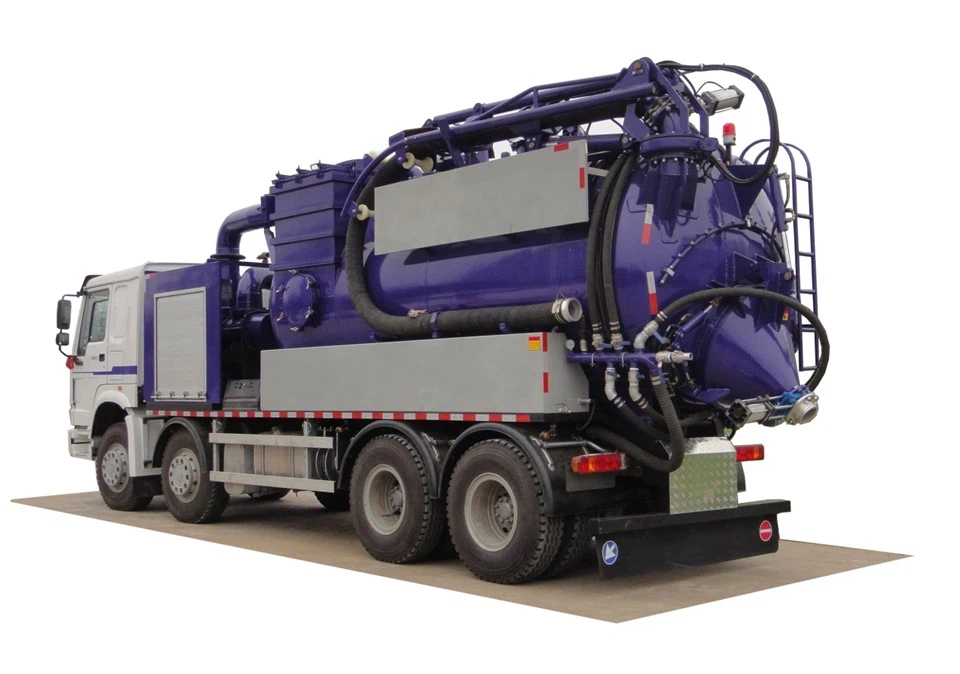Heil Waste Trucks: A Comprehensive Guide to Waste Management Solutions

Introduction
Waste management is a critical aspect of maintaining clean and sustainable communities. One of the prominent names in this sector is Heil, a company that has been manufacturing refuse collection vehicles since 1901. Known for their innovative features and robust designs, Heil waste trucks are trusted by municipalities and waste management companies across the globe. This article aims to provide an in-depth look at Heil waste trucks, covering their types, features, Maintenance, technology, and more.
1. Overview of Heil Waste Trucks
Heil waste trucks are specially designed vehicles that cater to the needs of waste collection and disposal. Their engineering focuses on efficiency, reliability, and user-friendliness. Equipped with advanced technology, Heil trucks are pivotal in ensuring that waste management operations run smoothly.

1.1 History of Heil Manufacturing
Founded in 1901, Heil has established itself as an industry leader in waste management solutions. The company began producing refuse collection vehicles to meet the needs of growing urban populations. Over the decades, Heil has evolved, innovated, and adapted its products to incorporate cutting-edge technology and sustainable practices.
1.2 Key Features of Heil Waste Trucks
- Durable Construction: Built to withstand heavy use and harsh conditions.
- Advanced Hydraulic Systems: Ensures optimal lifting and compacting mechanisms.
- Ergonomic Design: Enhances operator comfort and safety.
- Environmental Considerations: Incorporation of eco-friendly features to reduce emissions.
2. Types of Heil Waste Trucks
Heil offers a variety of waste truck models, catering to different waste management needs. Below are some of the most popular types:
2.1 Front Loader Trucks
Front loader trucks are ideal for commercial waste collection. They feature a sturdy bucket lift that allows for easy and efficient loading of large containers.
2.2 Rear Loader Trucks
Rear loader trucks are the go-to choice for residential waste collection, allowing for easy access to bins located at the curbside. Their compact design makes them maneuverable in tight spaces.
2.3 Side Loader Trucks
Side loader trucks provide greater efficiency by allowing the operator to collect waste without leaving the cab. These trucks are equipped with robotic arms that automate the loading process.
2.4 Roll-off Trucks
Roll-off trucks are designed for transporting large containers or dumpsters, making them ideal for construction and demolition sites, as well as for large waste accumulation.
2.5 Recycling Trucks
Recycling trucks from Heil are specially designed for the collection and separation of recyclable materials. They often include multiple compartments to sort different materials during collection.
3. Technology in Heil Waste Trucks
The advancement of technology has revolutionized the waste management industry. Heil embraces these changes, integrating cutting-edge technology into their waste trucks.
3.1 Automated Systems
Many Heil trucks now feature automated loading systems, reducing the need for manual labor and increasing efficiency in waste collection.
3.2 GPS Tracking
GPS tracking provides real-time data on routes and vehicle performance, enabling waste management companies to optimize their operations.
3.3 Fleet Management Software
Fleet management software helps in monitoring vehicle health, scheduling maintenance, and ensuring compliance with safety regulations.
3.4 Eco-Friendly Technologies

Heil waste trucks are increasingly being equipped with features to enhance fuel efficiency and reduce emissions, such as alternative fuel options and energy-efficient engines.
4. Maintenance of Heil Waste Trucks
Proper maintenance is crucial for extending the lifespan of Heil waste trucks and ensuring they operate efficiently.
4.1 Regular Inspections
Routine checks on engine performance, hydraulic systems, and brakes are essential. A checklist can include:
| Inspection Item | Frequency |
|---|---|
| Oil Changes | Every 3,000 miles |
| Tire Pressure | Weekly |
| Brake System | Monthly |
| Hydraulic Fluid | Weekly |
4.2 Parts Replacement
Regularly replacing key components such as filters, belts, and hoses will prevent breakdowns. Keeping an inventory of commonly used parts can reduce downtime.
4.3 Professional Servicing

Engaging with certified professionals for regular servicing will ensure that all systems are functioning according to manufacturer specifications.
5. Cost Considerations for Heil Waste Trucks
The cost of acquiring and maintaining Heil waste trucks can vary based on several factors, including the model, features, and operating conditions.
5.1 Purchase Costs
Different models come at different price points. Front loaders may range from $200,000 to $300,000, while side loaders can cost between $150,000 and $250,000.
5.2 Operating Costs
Operating costs encompass fuel, maintenance, and repair expenses. Companies should budget for fuel-efficient operations and regular maintenance to minimize these costs.
5.3 Financing Options
Many waste management companies consider leasing options or financing to manage the purchase of Heil trucks effectively. Researching multiple finance solutions can yield favorable terms.
6. Practical Tips for Selecting the Right Heil Waste Truck
Selecting the appropriate Heil waste truck is crucial for optimizing waste management operations. Here are practical tips to consider:
6.1 Evaluate Your Waste Collection Needs
Understand the nature of your waste collection—commercial versus residential— to determine which model suits your operations best.
6.2 Consider Vehicle Size and Capacity
Select a truck that can handle the volume and weight of the waste you expect to collect. For larger tasks, consider a roll-off truck, whereas smaller fleets can utilize rear loaders.
6.3 Assess Environmental Impact
Choose models that incorporate eco-friendly technologies. Examine fuel options and emission controls to fulfill compliance and sustainability goals.
6.4 Analyze Total Cost of Ownership
Factor in not just the initial purchase price, but also maintenance, repairs, fuel consumption, and resale value in your financial planning.
6.5 Examine Warranty and Service Plans
Inquire about warranty terms and available service plans for peace of mind. A comprehensive service package can significantly reduce unexpected expenses.
7. Case Studies: Success Stories of Heil Waste Trucks
7.1 Case Study 1: City of Springfield
The City of Springfield implemented Heil side loader trucks in its residential collection program, resulting in a 25% reduction in labor costs and a 40% improvement in efficiency.
7.2 Case Study 2: XYZ Waste Management Corporation
XYZ Waste Management incorporated Heil roll-off trucks to manage large construction projects. The decision led to an increased capacity for waste collection and revenue growth by 15% in a year.
8. Environmental Impact and Sustainability Initiatives
As waste management plays a crucial role in environmental sustainability, Heil is committed to reducing its carbon footprint through innovative designs and practices.
8.1 Fuel Efficiency Measures
Modern Heil trucks are designed for better fuel efficiency, significantly lowering greenhouse gas emissions and reducing operating costs.
8.2 Recycling Initiatives
Heil’s recycling trucks support the move towards a circular economy by facilitating the efficient collection of recyclable materials.
8.3 Sustainable Manufacturing Practices
Heil focuses on sustainable sourcing of materials and efficient manufacturing processes that minimize waste in truck production.
9. FAQ Section
9.1 What is the average lifespan of Heil waste trucks?
With proper maintenance, Heil waste trucks can last 10 to 15 years, depending on usage and operating conditions.
9.2 Are Heil waste trucks customizable?
Yes, Heil trucks can be customized with various options for different waste management needs, including container sizes and lifting mechanisms.
9.3 Do Heil trucks operate on alternative fuels?
Heil is developing models that run on compressed natural gas (CNG) and other alternative fuels to promote sustainability in waste management.
9.4 How can I ensure the safety of my operators when using Heil trucks?
Implementing comprehensive training programs, conducting regular safety checks, and equipping vehicles with safety features such as backup cameras can increase operator safety.
9.5 Where can I purchase Heil waste trucks?
Heil waste trucks can be purchased through authorized dealerships or directly from the company, depending on the model and your location.
9.6 What are the financing options available for Heil trucks?
Many companies offer leasing and financing options that can help offset the purchase costs, ranging from loans to flexible lease agreements.
